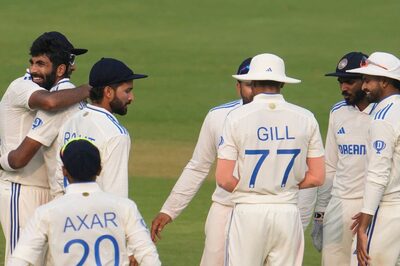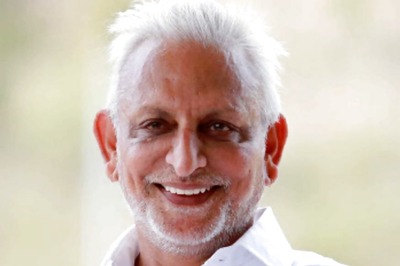
views
Kolkata: Eminent lyricist, poet and screenwriter Javed Akhtar feels the music in contemporary Indian cinema is no longer sympathetic to lyrics, and the tunes -- often high on tempo -- are not conducive for good poetry.
In a freewheeling interview, the Padma Bhushan awardee dwelt on his self-discovering journey as a poet, talked about issues like increasing hostility against freedom of expression in India and society's influence in changing cinema.
"I am very unhappy with the present music scenario in Bollywood. The music that is being produced is not very sympathetic to lyrics any more. First of all, they do not get good situations because there is more razzmatazz than emotional depth in the stories. So the situation for songs is not very emotional," said Akthar, who was in the city to attend the Tata Steel Kolkata Literary Meet.
"Besides, the tunes the writers are getting today are not very conducive for writing poetry because of the tempo and the orchestration. The tempo is such that the words do not get established. They do not have the space to breathe."
"On the other hand, the music is so loud... every song is treated like a clap song. So the percussion is often above the voice and the music gets ahead of words. So you just can't understand what the person is singing. May be you only know the 'Mukhra' (beginning of a song) and the rest of it gets lost in the cacophony," the septuagenarian said.
Akhtar, who has won multiple national awards for his lyrics in Hindi blockbusters like "Godmother", "Border" and "Lagaan", said Indian listeners prefer music that they can themselves sing.
"But they cannot sing if the tune is not worth humming, or the words are not clear. The listeners should not go to the words, the words should come to them," he said.
Also a noted poet, Akhtar said his poetry, which was initially nostalgic, has become more impersonal with time.
"When I started writing poetry, initially it was nostalgic. It was mostly about my childhood, my mother, the place I used to live in and so on. But then after that other interests and other concerns entered my poetry, be it about the socio-economic climate or the people."
The ace script-writer, who in partnership with Salim Khan enthralled Indian movie goers with their conceptualisation of the "angry young man" in films like "Zanjeer" (1973), "Deewaar" (1975) and the 1978 blockbuster "Don", has started writing a script again for a yet-to-be-named project.
He also revealed that there would be one or two exciting announcements soon, but declined to give out any details.
Terming film as a "captive art" that is not so powerful to bring about social change, Akhtar said it is the changing trends in society that directs the content and evolution of films.
"Because a film is an expensive exercise, it is kind of captive as an art. Commercial cinema looks to cater to the demands of society. That is why you would see that the mainstream was making different kind of films in the 50s, 60s and in the 90s. Society is changing cinema; cinema does not change society," he signed off.




















Comments
0 comment